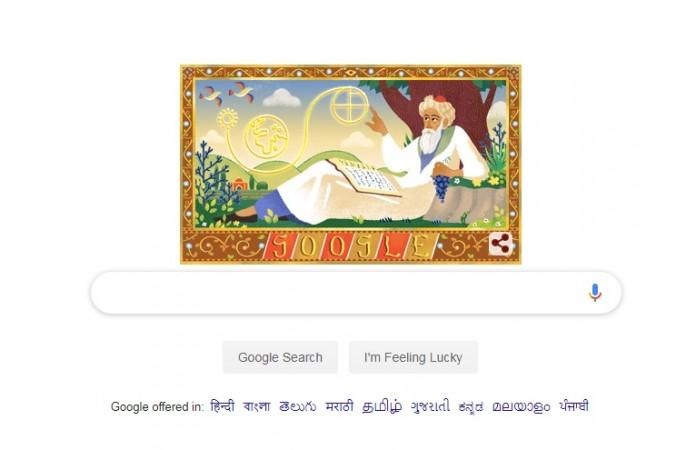
Google honours the 971st birthday of the infamous Persian poet, mathematician, astronomer and philosopher Omar Khayyam with a special doodle of him on Saturday.
Khayyam was born in Nishapur (then a major centre of Zoroastrians) in Iran during the medieval times on 18 May 1048, under the Seljuq dynasty. His father was a Zoroastrian who had converted to Islam.
According to the sources, Khayyam's full name was Abu'l Fath Omar ibn Ibrahim al-Khayyam. He was born into a family of tent-makers, which in Arab means Khayyam.
He is widely recognised for his astronomical expertise and his poetry. With his astronomical proficiency, he designed the Jalali calendar, a solar calendar with a very precise 33-year intercalation cycle, which later became the base for many other calendars and was used until the 20th century.

Even though he became famous for his poems posthumously, Khayyam's poems are celebrated by the people worldwide. It is written in four lines and is published in 'The Rubaiyat of Omar Khayyam'.
As a mathematician, Khayyam is known for his work on the classification and solution of cubic equations. He was the first to give a general method for solving cubic equations. Khayyam also contributed to the understanding of the parallel axiom and at the age of 22, he had already created a name for himself within the field of mathematics.
He furthermore wrote a treatise on extracting binomial theorem and the nth root of natural numbers, which has been lost.
He died at the age of 83 on December 4, 1131, and was buried in the Khayyam Garden at Nishapur.

















